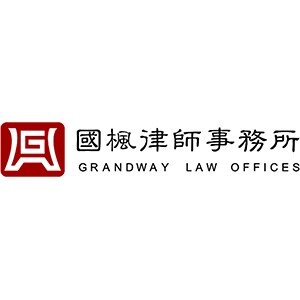Best Lawsuits & Disputes Lawyers in China
Share your needs with us, get contacted by law firms.
Free. Takes 2 min.
Or refine your search by selecting a city:
List of the best lawyers in China
China Lawsuits & Disputes Legal Articles
Browse our 1 legal article about Lawsuits & Disputes in China written by expert lawyers.
- Can You Enforce a Foreign Court Judgment in China? A Guide
- China now offers more reliable tools to chase assets, including a powerful Asset Reporting Order that forces judgment debtors to disclose their property or face fines, detention, or even criminal exposure. Enforcing foreign court judgments in China is still harder than enforcing arbitral awards, but recent Supreme People's Court (SPC)... Read more →
About Lawsuits & Disputes Law in China
Lawsuits and disputes in China are governed by an array of legal frameworks that address civil, administrative, and criminal cases. The Chinese legal system is based on civil law traditions and is primarily structured by the Constitution, the Basic Laws of the Chinese Civil Court, Criminal Procedures, and Administrative Proceedings. Key legal areas include contract disputes, tort claims, intellectual property cases, family law, and property disputes. The process can involve mediation, arbitration, or court proceedings depending on the nature of the dispute.
Why You May Need a Lawyer
The complexity of Chinese laws and the unique characteristics of its legal system make professional legal assistance vital in several scenarios:
- Contract Disputes: Disputes arising from breaches or disagreements related to contractual terms.
- Intellectual Property: Infringements or disputes over patents, trademarks, copyrights, or trade secrets.
- Property Disputes: Issues regarding land use rights, property ownership, or tenancy disagreements.
- Employment Disagreements: Matters related to employee rights, wrongful terminations, or contracts.
- Commercial Disputes: Conflicts between companies involving trade, partnerships, or mergers.
- Family Law: Divorce, child custody, and inheritance disputes may require legal intervention.
Local Laws Overview
China has specific legal aspects pertinent to lawsuits and disputes:
- Civil Code: Provides comprehensive regulations on personal and property rights.
- Contract Law: Governs the creation, execution, and enforcement of contracts.
- Intellectual Property Law: Protects patents, trademarks, and copyrights meticulously.
- Labor Law: Regulates employment practices and worker rights.
- Dispute Resolution: Encourages mediation and arbitration before litigation.
- Special Economic Zones: May have different laws affecting business operations and disputes.
Frequently Asked Questions
What is the litigation process like in China?
The litigation process involves filing of the case, gathering of evidence, hearings, judgment, and potential appeals. The process encourages mediation and often involves multiple phases of proceedings.
Can foreign nationals file lawsuits in China?
Yes, foreign nationals and companies can file lawsuits in China, but it's advisable to engage a local lawyer due to legal and procedural complexities.
What are the alternatives to litigation in China?
Alternatives include mediation and arbitration, which are encouraged and can be faster and less adversarial than court proceedings.
How are disputes involving foreign elements handled?
Disputes with foreign elements may involve international law and treaties. Specialized legal expertise is often required to navigate these cases.
Do Chinese courts recognize foreign judgments?
The recognition of foreign judgments is limited and typically requires a reciprocal agreement between nations.
How long does it take to resolve a dispute in China?
The time frame varies widely depending on the complexity of the case, court backlog, and whether parties choose mediation before litigation.
What are the costs associated with legal disputes in China?
Costs can include filing fees, attorney fees, evidence collection, and potential appeal costs. Some costs may be recoverable if you win the case.
Is it necessary to have a lawyer for small claims?
While not mandatory, a lawyer can ensure proper procedure and increase the chances of a favorable outcome, even in small claims.
Can I represent myself in Chinese courts?
Self-representation is allowed but not advisable due to the complexities of the legal system and language barrier issues.
What role does mediation play in disputes?
Mediation is a pivotal first step in many disputes, aiming to resolve issues amicably before resorting to litigation.
Additional Resources
Various resources can assist with legal inquiries and disputes in China:
- Ministry of Justice: Oversees legal affairs and provides information on laws and legal professionals.
- China International Economic and Trade Arbitration Commission (CIETAC): Offers arbitration services for commercial disputes.
- Legal Aid Centers: Provide assistance to those who cannot afford legal services.
- Local Bar Associations: Offer lawyer directories and professional conduct guidelines.
- Foreign Embassies: Can provide assistance and guidance to their nationals facing legal issues.
Next Steps
If you require legal assistance in disputes or lawsuits in China:
- Identify the nature of your legal issue to determine the type of legal expert you need.
- Research and contact a qualified lawyer with expertise in Chinese laws relevant to your case.
- Gather all relevant documents and facts related to your case for your lawyer’s review.
- Consider alternative dispute resolution methods if advised by your legal counsel.
- Prepare for possible litigation by understanding the legal process and potential outcomes.
Lawzana helps you find the best lawyers and law firms in China through a curated and pre-screened list of qualified legal professionals. Our platform offers rankings and detailed profiles of attorneys and law firms, allowing you to compare based on practice areas, including Lawsuits & Disputes, experience, and client feedback.
Each profile includes a description of the firm's areas of practice, client reviews, team members and partners, year of establishment, spoken languages, office locations, contact information, social media presence, and any published articles or resources. Most firms on our platform speak English and are experienced in both local and international legal matters.
Get a quote from top-rated law firms in China — quickly, securely, and without unnecessary hassle.
Disclaimer:
The information provided on this page is for general informational purposes only and does not constitute legal advice. While we strive to ensure the accuracy and relevance of the content, legal information may change over time, and interpretations of the law can vary. You should always consult with a qualified legal professional for advice specific to your situation.
We disclaim all liability for actions taken or not taken based on the content of this page. If you believe any information is incorrect or outdated, please contact us, and we will review and update it where appropriate.
Browse lawsuits & disputes law firms by service in China
China Attorneys in related practice areas.
Browse lawsuits & disputes law firms by city in China
Refine your search by selecting a city.












